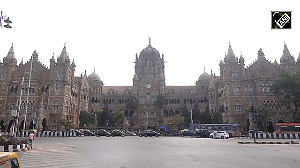Malcolm Speed has expressed hope that the positive dope tests of Pakistan's Shoaib Akhtar and Mohammad Asif would encourage other countries to adopt similar anti-doping measures.
International Cricket Council Chief Executive revealed that five countries conduct regular dope tests for its players, one of which is Pakistan.
The PCB, which had arranged to have urine samples of 19 players tested at the World Anti-Doping Agency-accredited laboratory in Malaysia, has now asked for reconfirmation of the reports.
Also see: The Fall Guys
Shoaib and Asif's 'A' sample allegedly tested positive for the banned anabolic steroid Nandrolone. The results of the 'B' sample will be out on Tuesday.
"South Africa, Australia, England, New Zealand and Pakistan carry out dope tests regularly, and not just before big tournaments like the ICC Champions Trophy," Speed told newspersons in Jaipur on Monday, ahead of Tuesday's match between Sri Lanka and Pakistan.
"There are some countries who cannot carry out these tests because they don't have the required facilities, as is the case in India. But we are hopeful that the developments in the past 24 hours do encourage all teams to take up this policy and make sure that their players are clean."
Speed explained that it is the PCB's prerogative to decide on what action to initiate against the erring players in case even the 'B' samples too are positive.
"The ICC has signed the WADA (World Anti-Doping Agency) code, whereby we take a zero tolerance position to doping. But the ICC does not have the power intervene in the decision the PCB takes; maybe the WADA can, if it decides to do so.
"Because the tests were conducted by the PCB, the results will be dealt with by their anti-doping tribunal. The hearing will take place under the WADA code, which also provides the players with some defences."
According to the WADA policy adopted by the ICC, any player found guilty of a doping practice could be subject to the following sanctions:
A: suspension for two years in the case of a first violation or a lifetime ban for a second offence
B: fine, loss of financial assistance, rewards or records received during the tournament.
The WADA provides for athletes to reduce or eliminate the sanctions imposed if they can prove that they were not at fault or at significant fault, known as the negligence to violation.
Nandrolone is a commonly abused drug in sports and also easy to detect since it is produced by the body in very small amount. According to doping rules, a test of anything above 2 mg per ml of urine is treated positive.
In recent times, tennis players Petr Korda (Czech Republic), Sesil Karatantcheva (Bulgaria) and Dutch footballer Edgar Davids tested positive for the banned drug.
Speed said the ICC had provided all its members a complete list of banned substances which was then transmitted to the medical panel of the respective members.








 © 2025
© 2025